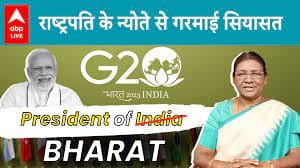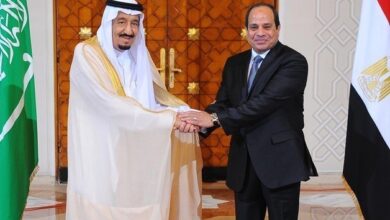
By: Mr. Ahmed Moustafa
Egyptian Economist and International Youth Coach.. director of Asia Center for Studies and Translation
https://www.linkedin.com/in/ahmed-moustafa-27422814/
Asia Center for Studies and Translation – Directed by Ahmed Moustafa (wordpress.com)
Master Holder in Political Economy 2021, HSE Moscow..member of CODESRIA, Dakar, Senegal, and Group of Strategic Vision.. Russia and Islamic World, Journalists Against Extremism
Cellphone: +201009229411
Email: solimon2244@yahoo.com
ahmedmoustafa830@gmail.com
Introduction
Top presidents and prime ministers from around the world gather for the annual G20 Leaders Summit in the Indian capital, Delhi, from September 9-10.
The G-20 is a forum for economic and financial cooperation between countries and international destinations and organizations that play a pivotal role in the economy and trade in the world. It meets annually in one of the member states to discuss plans for the global economy.
The G20 countries represent 85 percent of the world’s economic output and 75 percent of world trade, and the total population of these countries represents two-thirds of the world’s population.
The finance ministers and heads of central banks in the member states of the Group of Seven had decided at the summit of the group in 1999 to expand the group and include their counterparts in the countries of the Group of Twenty.
The decision came when turmoil prevailed in global financial markets due to the Asian crisis (which began with the collapse of the Thai currency) in that world. However, in the aftermath of the global financial crisis in 2008, the level of participation in the G20 summit meetings was raised to the level of presidents.
According to the established tradition, representatives of 9 countries will be invited to participate in the events. Among these countries will be Egypt represented by President Sisi, as well as the President of Nigeria, the Sultan of Oman, the President of the UAE, as well as the Prime Ministers of Mauritius, Singapore, Bangladesh, the Netherlands, and Spain.
G20 Summit’s Logo & Theme in New Delhi, India 2023
The G20 Logo draws inspiration from the vibrant colors of India’s national flag – saffron, white and green, and blue. It juxtaposes planet Earth with the lotus, India’s national flower that reflects growth amid challenges. The Earth reflects India’s pro-planet approach to life, one in perfect harmony with nature. Below the G20 logo is “Bharat”, written in the Devanagari script.
India spice exports accounted for over 1.4 million metric tons and 3.1 billion U.S. dollars in value that year.
The theme of India’s G20 Presidency – “Vasudhaiva Kutumbakam” or “One Earth · One Family · One Future” – is drawn from the ancient Sanskrit text of the Maha Upanishad. Essentially, the theme affirms the value of all life – human, animal, plant, and microorganisms – and their interconnectedness on the planet Earth and in the wider universe.
The theme also spotlights LiFE (Lifestyle for Environment), with its associated, environmentally sustainable, and responsible choices, both at the level of individual lifestyles as well as national development, leading to globally transformative actions resulting in a cleaner, greener and bluer future.
The logo and the theme together convey a powerful message of India’s G20 Presidency, which is of striving for just and equitable growth for all in the world, as we navigate through these turbulent times, in a sustainable, holistic, responsible, and inclusive manner. They represent a uniquely Indian approach to our G20 Presidency, of living in harmony with the surrounding ecosystem.
For India, the G20 Presidency also marks the beginning of “Amrit Kaal”, the 25-year period beginning from the 75th anniversary of its independence on 15 August 2022, leading up to the centenary of its independence, towards a futuristic, prosperous, inclusive and developed society, distinguished by a human-centric approach at its core.
The negative impact of China and Russia’s absence in G20 India 2023
The G20 (India 2023) is scheduled to be the largest gathering of the world’s most powerful leaders, with the summit being held in India during 2023. The summit is expected to focus on the topics of economic stability and social sustainability, with a particular focus on the continuing effects of the pandemic on the global economy. However, the G20 member states will be without two of the world’s most influential powers – Russia and China. While both countries were invited to attend the summit, both chose to forego attendance due to international tensions.
Given the G20 mandate, it is clear that both countries bring strong and influential voices to the table. Their absence will certainly be felt, as they represent two of the world’s largest economies and two of the most powerful militaries. The first and most obvious consequence of their absence is the loss of collective bargaining power. As part of the G20, China and Russia bring with them a level of economic influence that will be difficult to replicate. Without them at the negotiating table, the G-20 will not be able to make decisions with broad representation or the same degree of power.
The second issue that arises from the absence of these two countries is the possibility of disagreement and division. The G20 is an opportunity to discuss common problems and find amicable solutions. However, with two of the most powerful countries in the world not attending, that limits the scope and depth of the discussion. Although more than seventy countries and entities will attend the summit, all of these countries will remain present without a unified perspective. This can lead to a breakdown in open communication and, as a result, a lack of meaningful progress or action.
In addition, in the absence of Russia and China at the table, there is a risk that other countries will take advantage of the absence of Russia and China for their own benefit. This could take the form of unfairly prioritizing national interests over shared goals or advancing a framework that would be difficult to pass in the event of either world power present. Such an outcome could be detrimental to the summit and the G20 organization as a whole, as it could lead to resentment and erosion of trust among G20 members.
Finally, it is important to keep in mind the geopolitical implications of the decision. Russia and China are longtime members of the G-20, and their absence could send the wrong message to the rest of the world. It could be seen as a sign of division within the G20 and could lead to further alienation and isolation of these countries, which could have serious implications.
G20 India without the two rivals China and Russia
This year’s G20 summit, which will be held in less than two days, may also be linked to the Indo-Pacific Initiative, which America has been promoting for more than two years, to compete with China’s Road and Belt Initiative.
India is trying to present itself as a strong competitor and ally of Western powers in opposition to China and Russia.
Indian Prime Minister Narendra Modi on Thursday presented a 12-point proposal to enhance cooperation at the India-ASEAN Summit, which ended today, in areas such as digital transformation, trade, and economic engagement, while addressing contemporary challenges such as terrorism and deepening the strategic partnership. Modi attended the 20th ASEAN-India Summit in the Indonesian capital. The summit was also attended by the Secretary-General of ASEAN (Association of Southeast Asian Nations) Dr. Kao Kim Horn.
The G20 India Summit 2023 will be held in India for the first time in September of that year. However, the world’s two major emerging powers, China and Russia, will miss the meeting. Accordingly, there are different dynamics to the inclusion and exclusion of these two countries and the effects this could have on the outcome of the summit as well as on the geopolitical and economic landscape of the region.
To analyze the impact of their absence, we will then compare the G20 summit to Australia in 2014, which was the first to exclude Russia due to international sanctions. Finally, emphasis will be placed on new trade partnerships that can be developed in the absence of China and Russia, and the need for India to adjust its economic and diplomatic strategies in order to take full advantage of this once-in-a-lifetime opportunity. an opportunity.
The Group of 20, or G20, is an international cooperative organization of the world’s leading economies, formed to facilitate global economic policy coordination and cooperation. Founded in 1999, the G20 consists of nineteen countries plus the European Union. The countries attending the summit broadly represent all of the world’s major powers and economies, and any changes in the group’s dynamics could have major geopolitical and economic repercussions.
G20 India 2023 is the first G20 summit to be held in India, and due to rising tensions between India and China, as well as the escalating geopolitical situation between Russia and the West, both China and Russia are set to be absent from the summit. This unprecedented development breathes new life into the possible outcomes of the G20 and raises the question of how India should adjust its policies and strategies to maximize the potential benefits of its exclusion.
China and Russia are two of the most powerful and influential countries in the world today. As two of the five enduring members of the United Nations Security Council and two of the biggest emerging market economies on the world stage, both countries have the ability to significantly shape change in the world economy, politics, and security. The exclusion of both countries from the G20 summit prevents India from having to interact or negotiate with two global powers it has increasingly been at odds with, allowing India to take a more active and central role in the diplomatic atmosphere of the event.
The implications of their absence could also provide opportunities for new trade partnerships to emerge. Without China and Russia participating, other countries who have been at odds with them may feel more comfortable to enter negotiations and ties with India without the traditional strong-arm tactics employed by the two major powers. This could in turn lead to a more open economic climate in the region that could benefit India in the long run.
G20 Australia 2014
In order to better understand the implications of the exclusion of China and Russia from the G20 India 2023 summit, it would be helpful to take a look at the G20 Australia 2014 summit, which was the first G20 summit to exclude Russia after the country was placed under international sanctions due to its actions in Ukraine.
The Australian summit reflected the tensions within the G20 over key international issues such as the Ukraine crisis, drug pricing, and the future of the global economy. The summit also led to the creation of the Global Infrastructure Initiative, an initiative to help coordinate the development of infrastructure in the G20 countries.
Russia’s exclusion from the summit highlighted the changing diplomatic dynamics of the G20. Without one of its key members, the G20 seemed to be less divided on key international issues and more prone to collaboration and compromise, leading to a productive and successful summit. This serves as an interesting parallel to the G20 India 2023 Summit and could provide a good indication as to the sort of atmosphere and outcome that could be expected from India’s first G20 summit.
Does the BRICS group after expansion compete with G20?
The BRICS membership may have been expanded from five member nations to 11, but its role and purpose as a major global platform for collaboration among emerging markets remains largely the same. In fact, it can be argued that the BRICS group may even have gained more relevance in today’s global economy due to its more extensive membership, as it now includes some of the world’s largest emerging markets from both the southern and eastern hemispheres. Unlike the G20, the BRICS countries have come together not to address a specific set of some of the world’s most pressing economic issues, nor are the countries of the BRICS group the top 20 economies in the world. Rather, the BRICS group is unique because it is composed of countries that have been identified as “emerging” or “developing” economies (including South Africa) and are likely to become the next generation of global economic players.
In terms of financial technology (fintech), the BRICS group is already emerging as a powerful influence in global economic dynamics. Although most of the countries represent smaller economies, the sheer size and combined population of the BRICS countries make for an impressive aggregate consumer base and an immensely attractive market for innovative financial technology. BRICS countries have come together to collaborate on joint fintech projects, such as the BRICS Pay system, which was created to enable a more uniform global payments environment. This type of collaboration is critical to bridge the gap between emerging markets and more established ones.
It can thus be argued that the addition of the BRICS group does not necessarily have to be viewed as a competition to the G20 in terms of fintech. Whereas the BRICS group has the potential to become a significant player in the field of fintech, the G20 continues to be a major source of support and guidance for established economies on a more global scale. The G20 is more likely to be readdressed to help enable comprehensive economic activity on the global stage while the BRICS’ primary focus is to build and nurture innovative technologies and financial solutions that address the needs of emerging markets.
In conclusion, the absence of Russia and China from the G20 India 2023 summit will have serious consequences. The loss of collective bargaining strength, potential for division and discord, and heightened risk of exploitation of their absence could lead to a breakdown in communication and reduce the overall efficacy of the summit. Furthermore, the geopolitical implications of their absence could have long-lasting implications that could further destabilize international relations.
The G20 India 2023 Summit will be the first time this historic forum has been held in India, and its exclusion of two of the world’s most influential countries, China and Russia, presents a new and exciting development in international economic and diplomatic relations. The absence of these two countries from the summit could lead to a higher focus on collaboration between the participants, as well as to new trade and economic partnerships forming among the members. For this to be successful, however, India must take advantage of this opportunity by adjusting its economic and diplomatic strategies to best use the increased open atmosphere to their advantage.
The BRICS group is not as much of a competitor to the G20, as they have different focuses and objectives. However, the BRICS group does present a unique opportunity for financial technology projects that actively involve emerging countries and thus should be considered an emerging player in the field of financial technology.




